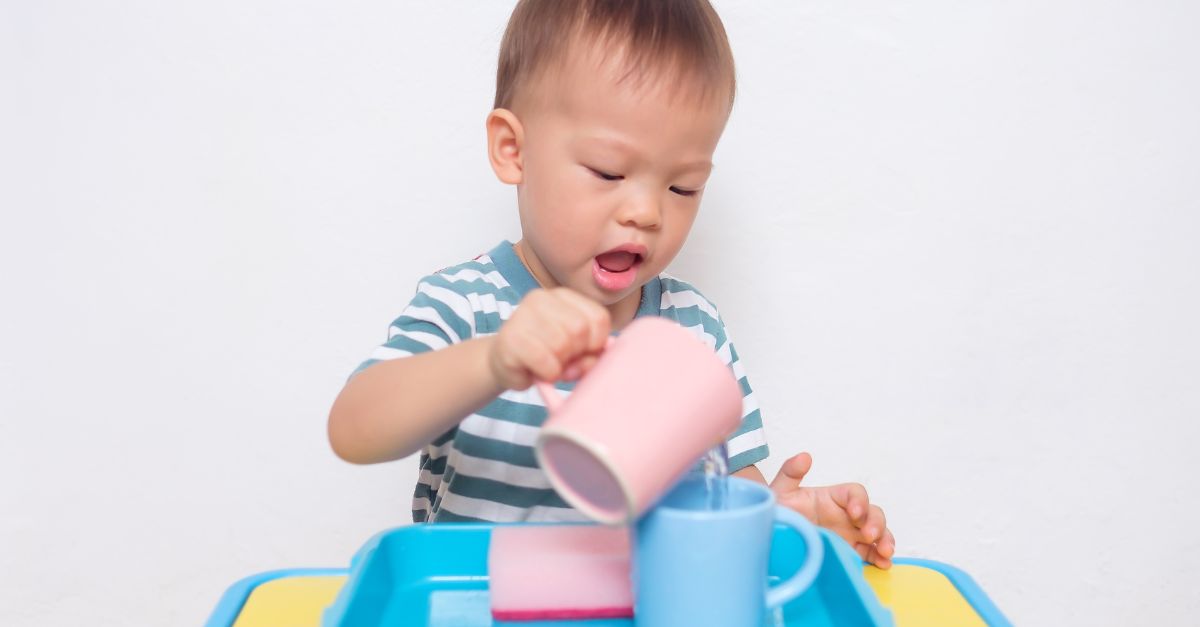
Fine motor skills are critical in a child’s development, as they form the foundation for various essential tasks, from writing to buttoning a shirt. These skills require the coordination of small muscles in the hands and fingers, which are instrumental in performing precise movements. Let’s explore some ways you can help your child develop fine motor skills.
Engage in Sensory Bin Activities
Sensory bins are an excellent way to help your child strengthen their hand and finger muscles. These bins, filled with materials like rice, beans, or sand, provide a tactile experience that encourages your child to dig, scoop, and sift through the contents. Such activities not only improve grip strength but also enhance sensory awareness.
For instance, filling a bin with small objects like beads or buttons and asking your child to pick them up with tweezers can significantly refine their fine motor skills. Sensory play is also crucial for cognitive growth, making it a holistic approach to skill development.
Introduce Puzzles and Building Blocks
Puzzles and building blocks are fantastic tools for enhancing hand-eye coordination. You’re your child manipulates puzzle pieces or stacks blocks, they learn to coordinate their hand movements with their visual perception. This practice is essential for tasks that require precision, such as tying shoelaces or writing. Children who regularly engage in puzzle-solving activities tend to develop better spatial awareness and problem-solving skills.
You can start with simpler puzzles and building blocks and gradually introduce more complex ones as your child’s skills improve, ensuring the activity remains both challenging and enjoyable. For example, you can slice a foam noodle into smaller pieces to create a foam noodle sensory play activity for your child. Your child can practice stacking the foam noodle pieces and creating other interesting shapes before moving on to more complex activities.
Encourage Drawing and Coloring
Drawing and coloring are not only creative outlets but also excellent exercises for developing precision and control. When your child holds crayons or markers, they practice gripping tools in a way that mimics holding a pencil. This activity helps in refining their ability to make controlled, deliberate movements.
Encourage your child to draw shapes, trace letters, or color within the lines to further enhance their fine motor skills. Regular drawing and coloring can significantly improve your child’s handwriting abilities, making this a fun yet educational activity.
Involve Your Child in Daily Tasks
Involving your child in daily tasks like buttoning shirts, zipping jackets, or pouring water provides them with practical skill development opportunities. You can seamlessly integrate these fine motor activities into your child’s routine. For example, teaching your child to button their shirt not only improves their dexterity but also fosters independence.
Practical life tasks are essential for your child, as they offer real-world applications of fine motor skills. Encouraging them to participate in these activities helps build confidence and competence in their abilities.
Supporting your child’s fine motor development is a gradual process that requires patience and consistency. By incorporating these ways to help your child develop fine motor skills, you can create a stimulating environment that promotes consistent growth. Every small effort contributes to their overall development.

Sam Hopes is a 37-year-old mom of two living in Portland, Oregon. She works as a freelance graphic designer and part-time yoga instructor, juggling creative projects with playdates and PTA emails. Known for her warm personality and dry humor, Sam loves hiking in Forest Park, thrifting on Mississippi Avenue, and weekend visits to OMSI with her kids, Ella and Milo. She’s the kind of parent who forgets sunscreen but always remembers snacks—and a good laugh.
